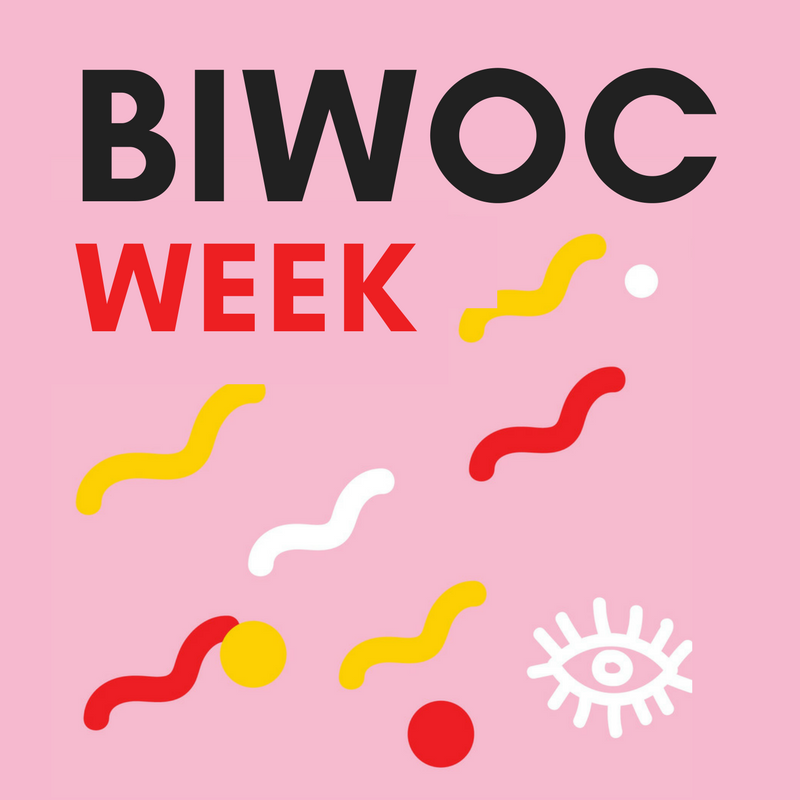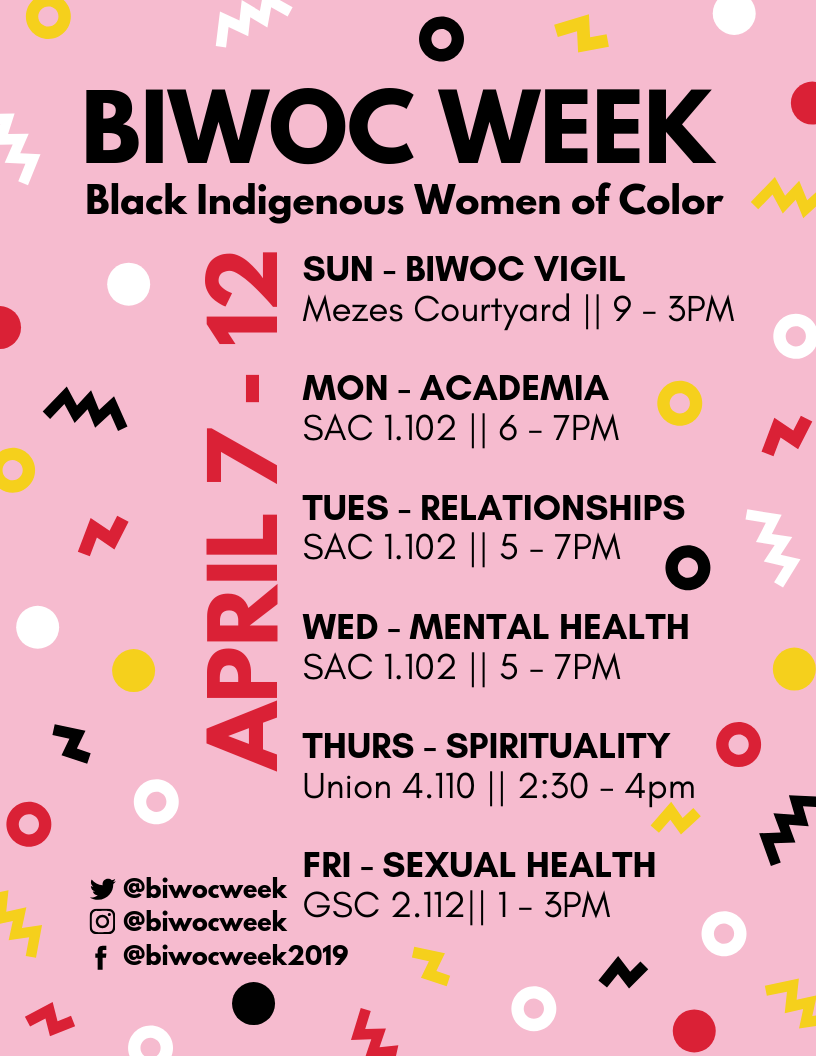According an article by the Texas Tribune, 60% of public school districts taught abstinence-only sexual education programs and 25% of districts offered students no sex-ed at all. With Texas being one of 25 other states that don’t require sexual education to be taught in schools, it is likely that many college students have not had the opportunity or space for an open and inclusive discussion of sexual health.
Story by Adriana Rezal
Photo courtesy of BIWOC
On the sixth day of BIWOC week, event organizers Nikki Lopez and Tasnim Islam dedicated the event to talking about sexual health. The event turned out a full-crowd, as almost 30 people sat on couches and on the floor in attendance. Lopez says she was surprised at the turnout and was glad attendees seemed interested and engaged with the topic. “I was really happy to see that people wanted to discuss this and wanted a space to talk about their sexual health because I feel like on campus there really isn’t, beyond the Gender and Sexuality Center,” Lopez says.
Event attendee Ariel Juarez says they are usually comfortable with being open about their sexuality and experiences, so attending the event was interesting for them to listen to what other people might be going through. “There was so many people that went to [the sexual health event] and so many people that were talking,” they say. “It was nice knowing that they were able to trust the space, talk about their personal experiences.”
In addition to free bagels and dildos (provided by Cocks Not Glocks), the main event was a workshop from Forbidden Fruit General Manager and “sexpert” Jonny Reynolds. He gave event attendees educational information on four sex topics that may not have been explained to them before: BDSM, anal and oral play, and strap-ons.
Reynolds says it is important to discuss these types of “taboo” sexual practices in order to normalize them and stop them from being considered as “taboo.” “The fact that somebody might be into anal play or bondage is just the same thing as somebody who prefers McDonald’s over Burger King,” he says. “It’s just your personal preference and that’s what you’re into … it’s just another fact of human life.”
Reynolds, who says he attended UT “many, many years ago,” says a space like the Gender and Sexuality Center did not exist during his time at the University. Reynolds says speaking with college students is a refreshing change from his typical audiences. “The most fun thing I get out of talking with college kids in particular is that they actually seem engaged and willing to listen and willing to learn something new,” he says.
Getting a comprehensive sexual health education not only informs someone on birth control and ways to prevent STDs, but can also encourage autonomy over one’s body and increase inclusivity of all sexual orientations and gender identities. In the BIWOC sexual health event, Reynolds served as a resource for information on sexual topics and practices that people might not otherwise have access to. “There’s not a lot of 19 year-olds that are experienced with rope bondage but it’s something you might want to get into, so I can talk to you about it,” Reynolds says. “Maybe you tried anal and it hurt so let me tell you how it’s not supposed to hurt … it’s supposed to feel good because that’s what sex is – it’s supposed to be a good thing.”












































